With the launch of the Samsung Galaxy S22 Ultra, we've seen the newest super-premium Android addition to the burgeoning Ultra market niche.
While its cameras are basically the same as those on the S21 Ultra, that's not necessarily a bad thing, as that was a good camera phone. There are four rear snappers, and each marries top hardware with useful software for photography.
So is this the best camera phone we've ever tested? Well, it's hard to say, given how photographers have their own preferences for pictures. To give you an idea of how it takes photos, we took it on a day out with the Xiaomi Mi 11 Ultra.
The Mi 11 Ultra is another top Android phone from 2021, with three massive rear cameras, and it's a benchmark for great photography in mobiles.
To see how they compare, we took both on a trip around London's Hyde Park, taking different types of pictures in different locations so we can put the images side by side.
We'll run you through the key photo groups now, so you can see how they compare.
Standard photos


Let's start with a 'main' picture on each camera – the main 'Photo' option in the app with no zoom with only the default options. The players here are the Samsung's 108MP f/1.8 snapper, and the Xiaomi's 50MP f/2.0 one – both have 24mm lenses.
There are benefits and drawbacks to each picture, and we're not really sure which we prefer.
Looking at the stone urn, we prefer the Samsung Galaxy S22 Ultra's shot. The texture of the stone is more apparent, with the darker areas giving some nice contrast and the sharp outlines helping, too.
But beyond the subject, it's different – the Galaxy seems to crush the darker areas, whereas on the Xiaomi you can see a lot more detail in the bushes and grass. Sure, the urn looks a little textureless and smooth, but for the wider landscape, the Mi 11 Ultra is better.
So in our first head-to-head round, we don't think we can award a win to either phone.
Zoom and ultrawide photography
We're pairing ultrawide photography and zoom photography together here, but purely for ease of sharing camera samples – we'll still be judging them separately.
First, let's look at the Samsung Galaxy S22 Ultra's zoom range: this uses a 12MP f/2.2 ultrawide, 10MP f/2.4 telephoto (for 3x optical zoom) and 10MP f/4.9 periscope (for 10x optical zoom).
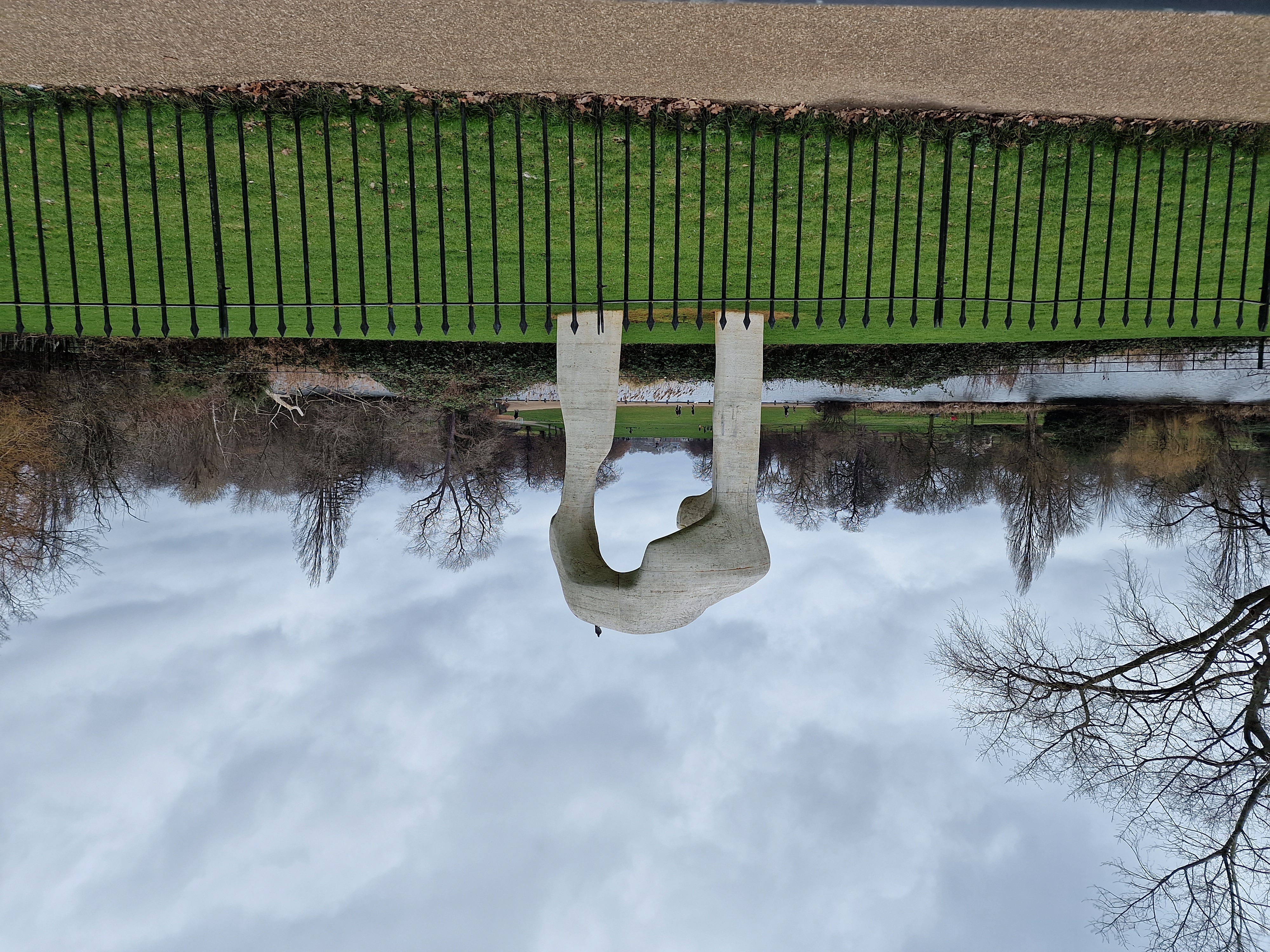
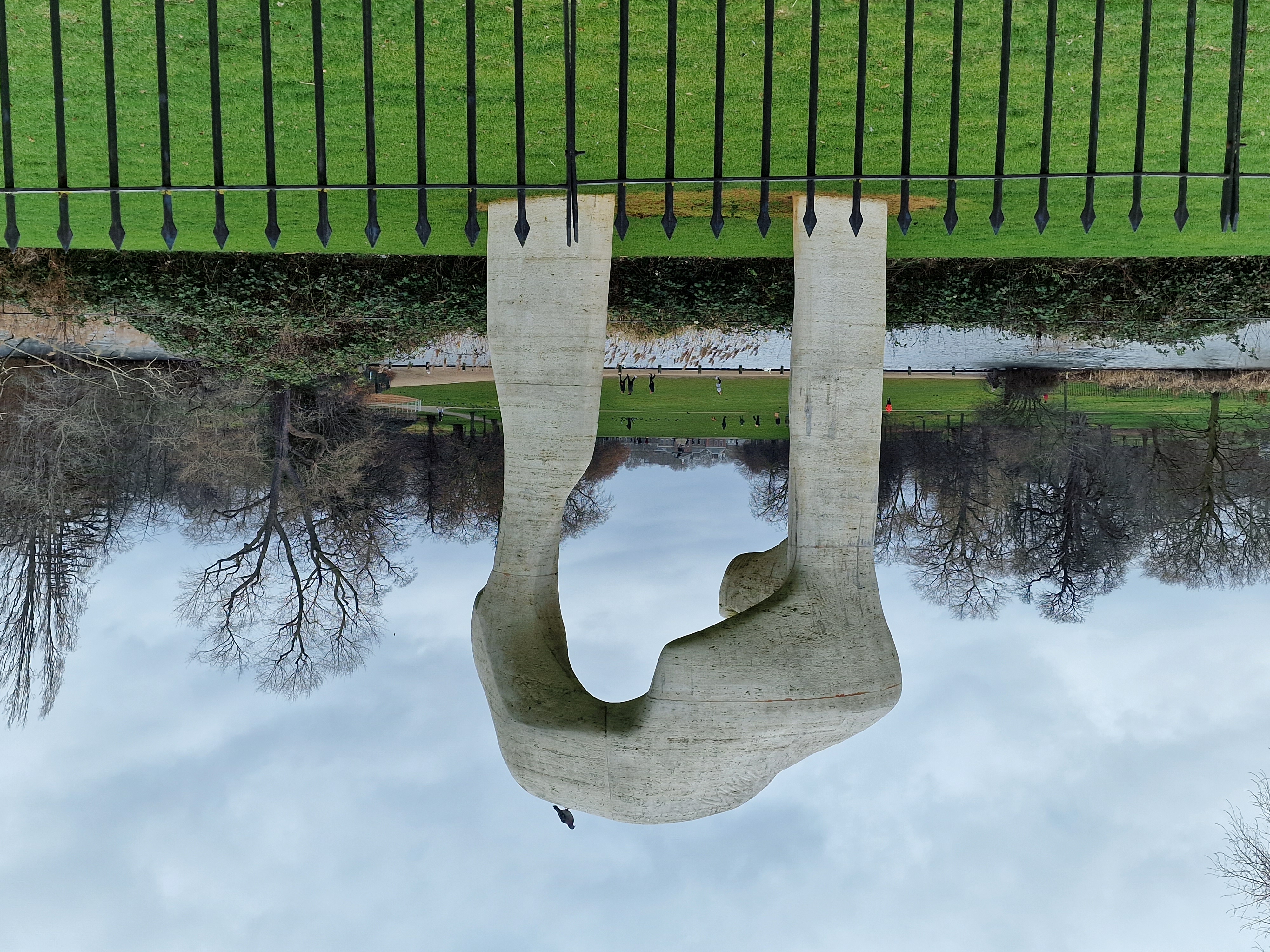
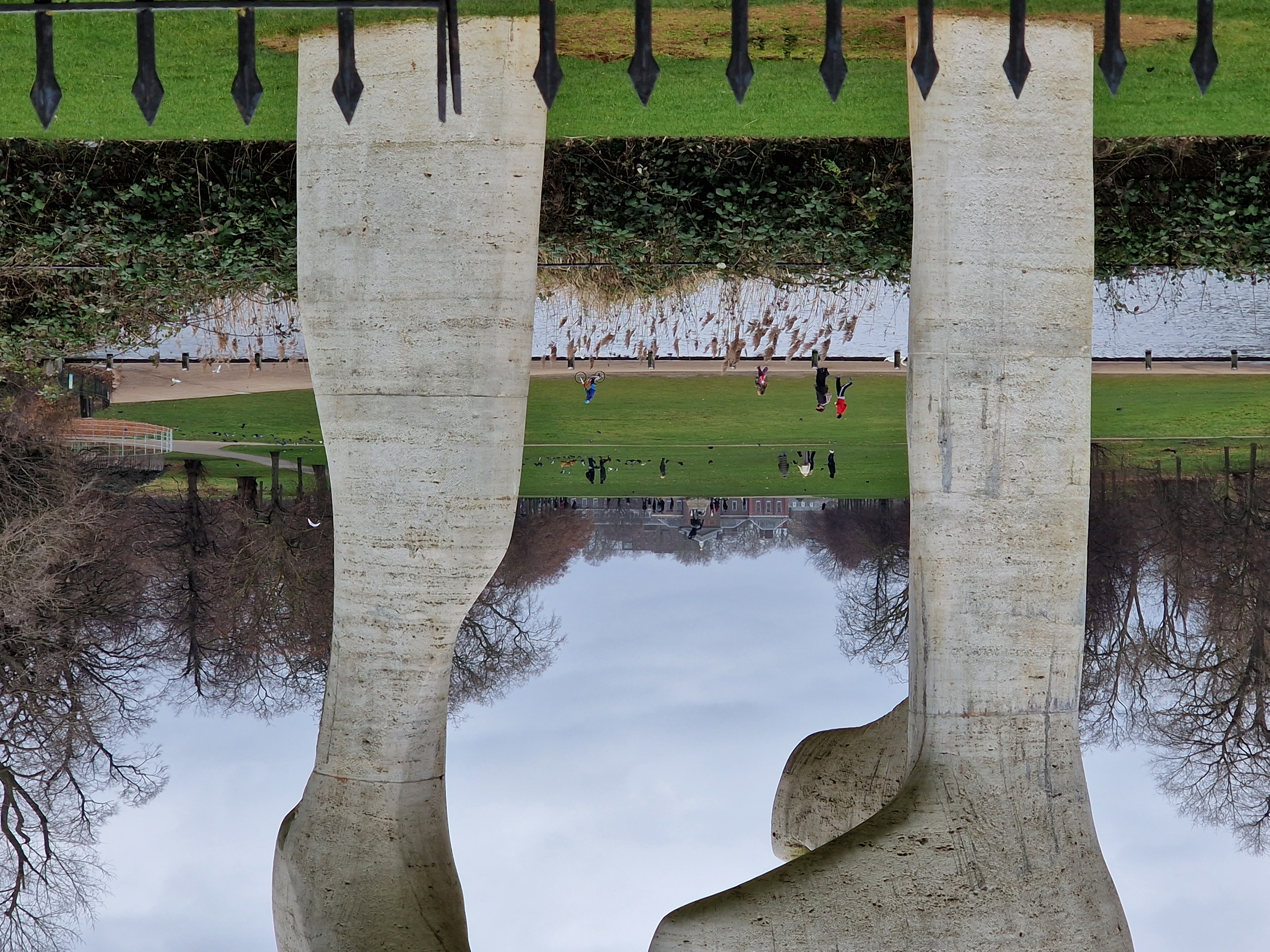
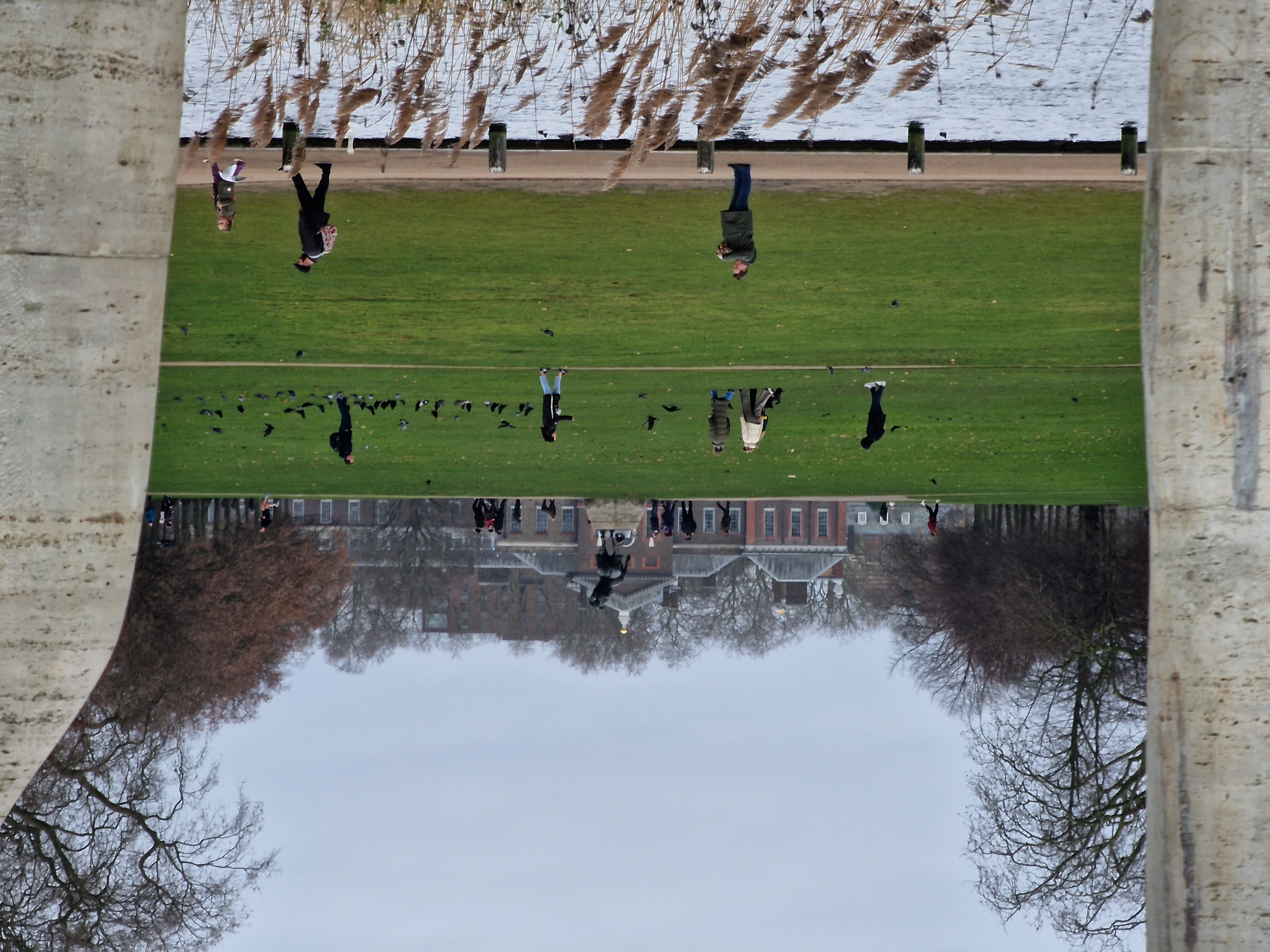
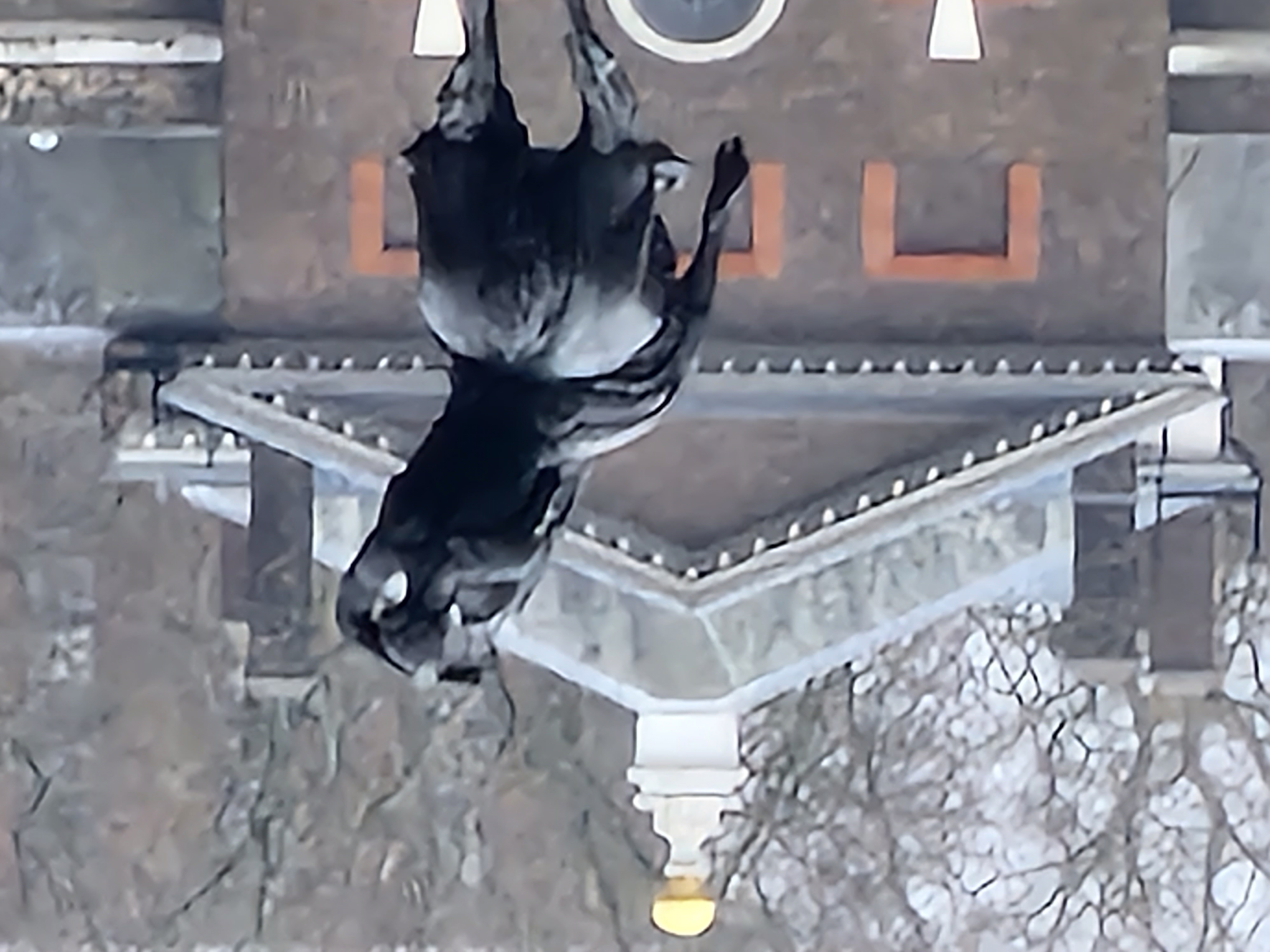
Here you see the arch statue thing, with Kensington Palace in the background, at ultrawide, 1x, 3x, 10x and 100x zoom. The first four of those use different lenses, the final one is digital (or Space Zoom, as the company calls it).
Now let's look at the Xiaomi offerings. These use its 48MP f/2.2 ultrawide and 48MP f/4.1 periscope lens, the latter of which hits 5x optical zoom.
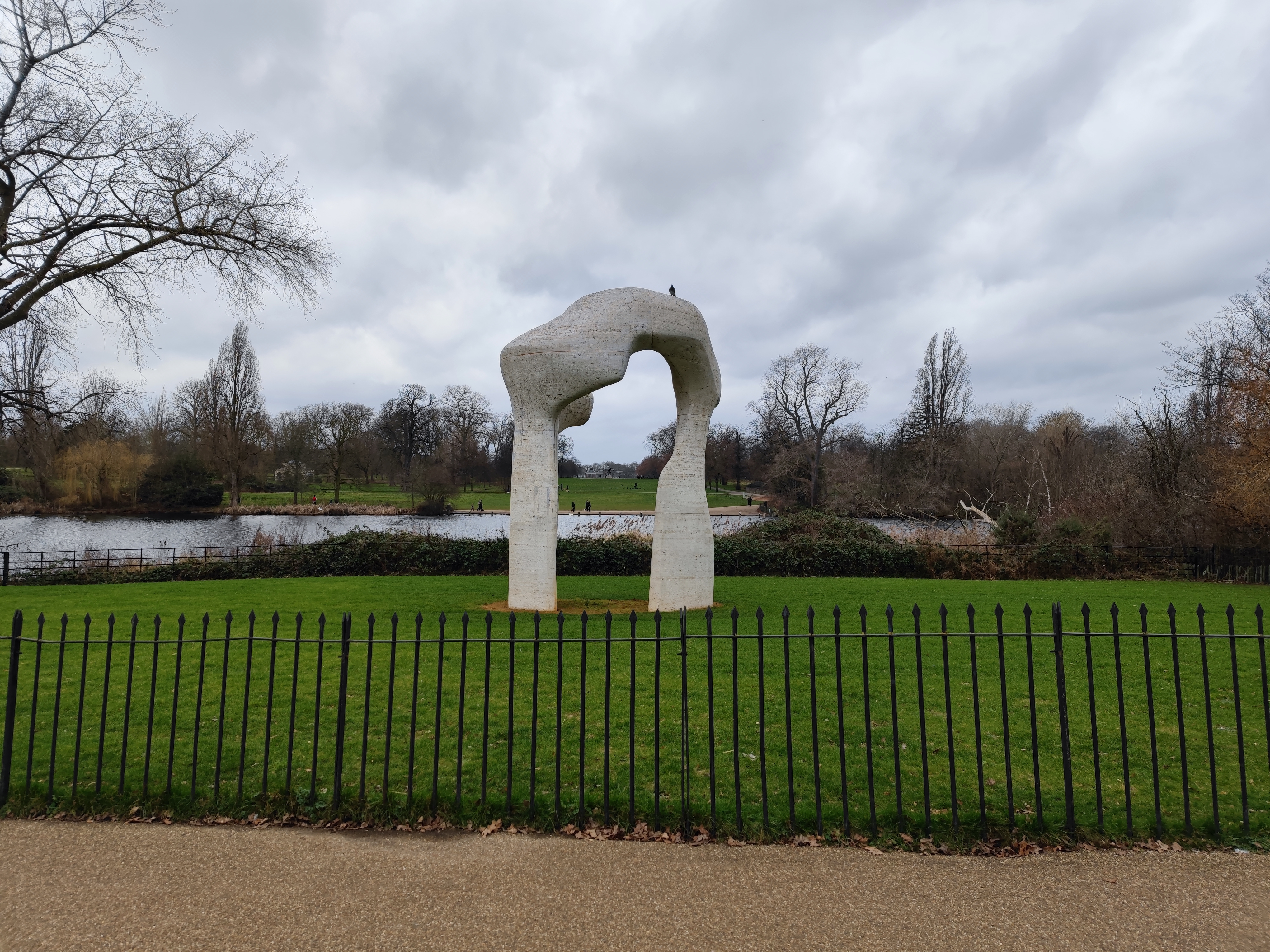


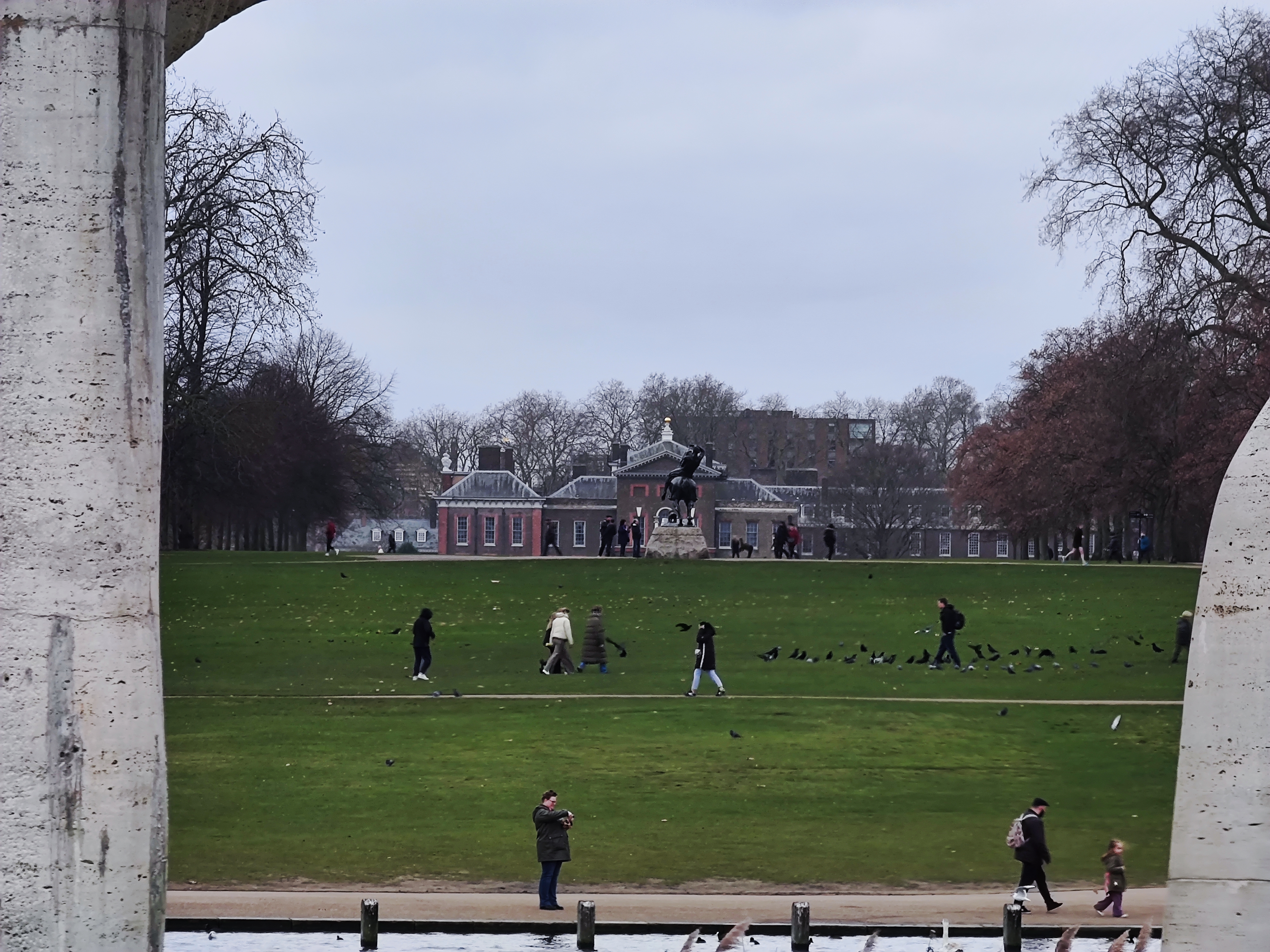

This is the same subject at ultrawide, 1x, 5x, 10x, and 120x zoom. The first three use the rear cameras, the other two are hybrid and digital, respectively.
Something to point out before we analyze these shots: you may have noticed that we didn't test out the same zoom ranges on the different phones. Instead, for both phones, we shot using the presets the app offers you to better emulate that photography experience.
Regarding the ultrawide lens, the Mi 11 Ultra is 0.5x while the S22 Ultra is 0.6x, so you're getting slightly more in frame with the former. We found such photos taken on the Xiaomi had a warmer hue than on the Samsung, but it was a little darker, too – we preferred the S22 Ultra's wide shots.
This extends to zoom shots, with the S22 Ultra's pictures being a little brighter and more vibrant, though we only noticed this when comparing the snaps side by side, so it's not exactly a huge difference.
However, Xiaomi's zoomed pictures seem a little sharper, especially at 10x zoom, which is a little embarrassing for Samsung since the Mi 11 Ultra only uses hybrid zoom for 10x instead of an actual lens.
The Xiaomi Mi 11 Ultra zooms further though, with 120x getting you closer than 100x, but at this full-zoom range, the pictures look horrendous.
So for zoom pictures, we can't come down one way or another. But for ultrawides, Samsung gets the trophy.
Portraits

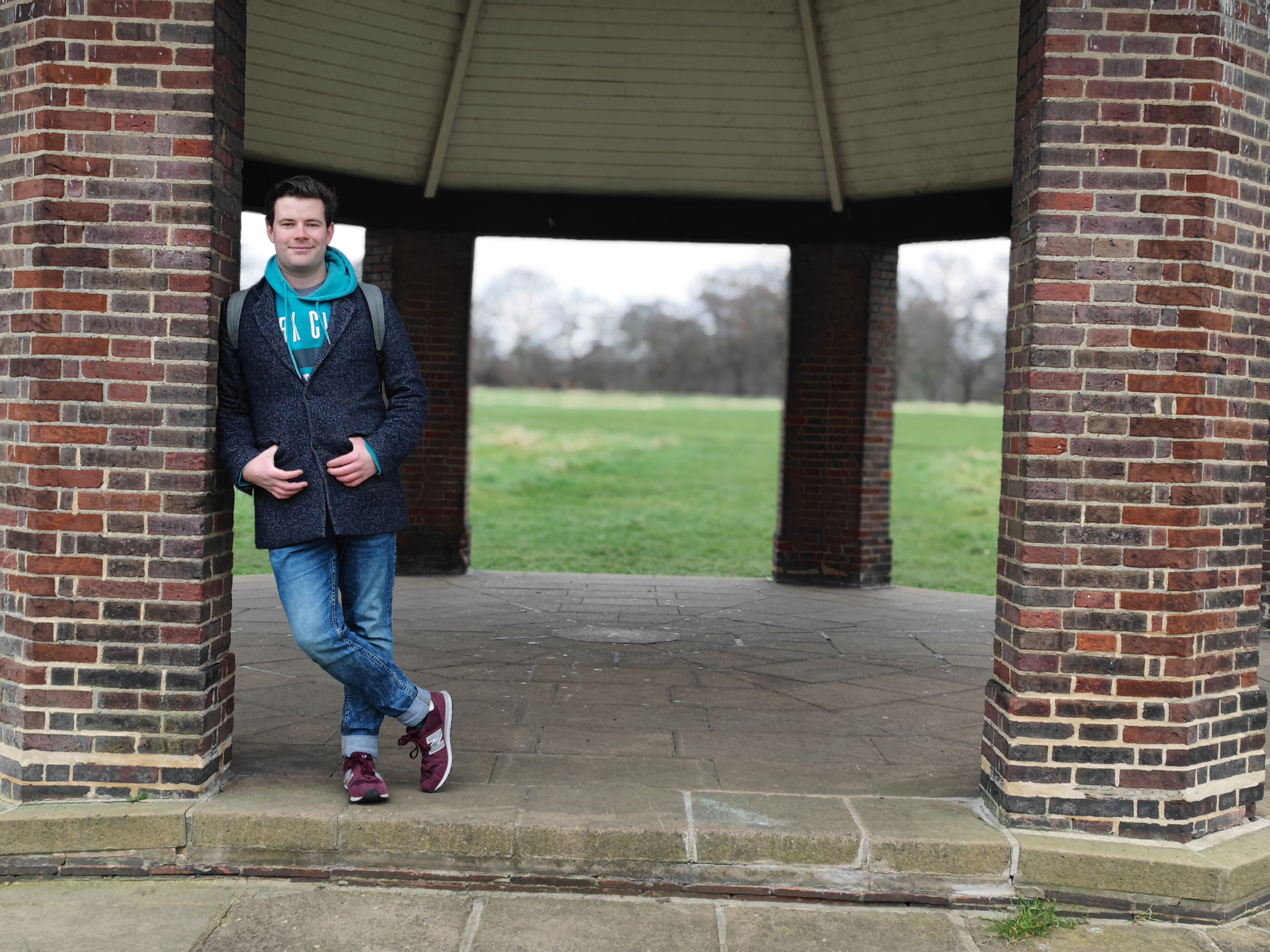
It's hard to compare Portrait shots on the Samsung and Xiaomi, for one key reason: zoom. You see, switch onto Portrait on the Xiaomi, and it jumps to 2x zoom – Samsung offers Portrait at 1x or 3x zoom.
So wherever we stood for the shot, one photo was too zoomed in or zoomed out. We chose not to take the pictures from different distances on each phone as that would ruin the control aspect of this camera comparison.
We preferred Portrait shots taken at 3x, not 1x zoom on the Samsung phone, as it let you frame the shot a bit better, and that's why we chose the shot we did in the comparison.
It's hard to pick which picture of the above ones is our favorite as both have strengths and weaknesses. In the Samsung image, the subject looks better; the face is more flush, the textures of the coat are more visible, and the subject stands out from the background better. But the snap taken on the Xiaomi has a much better-looking depth effect, and the contrast between the bright sky and the rest of the background is more striking.
So we're not going to say the Galaxy or Mi phone is better for Portrait shots – each has its strengths.
Macrophotography

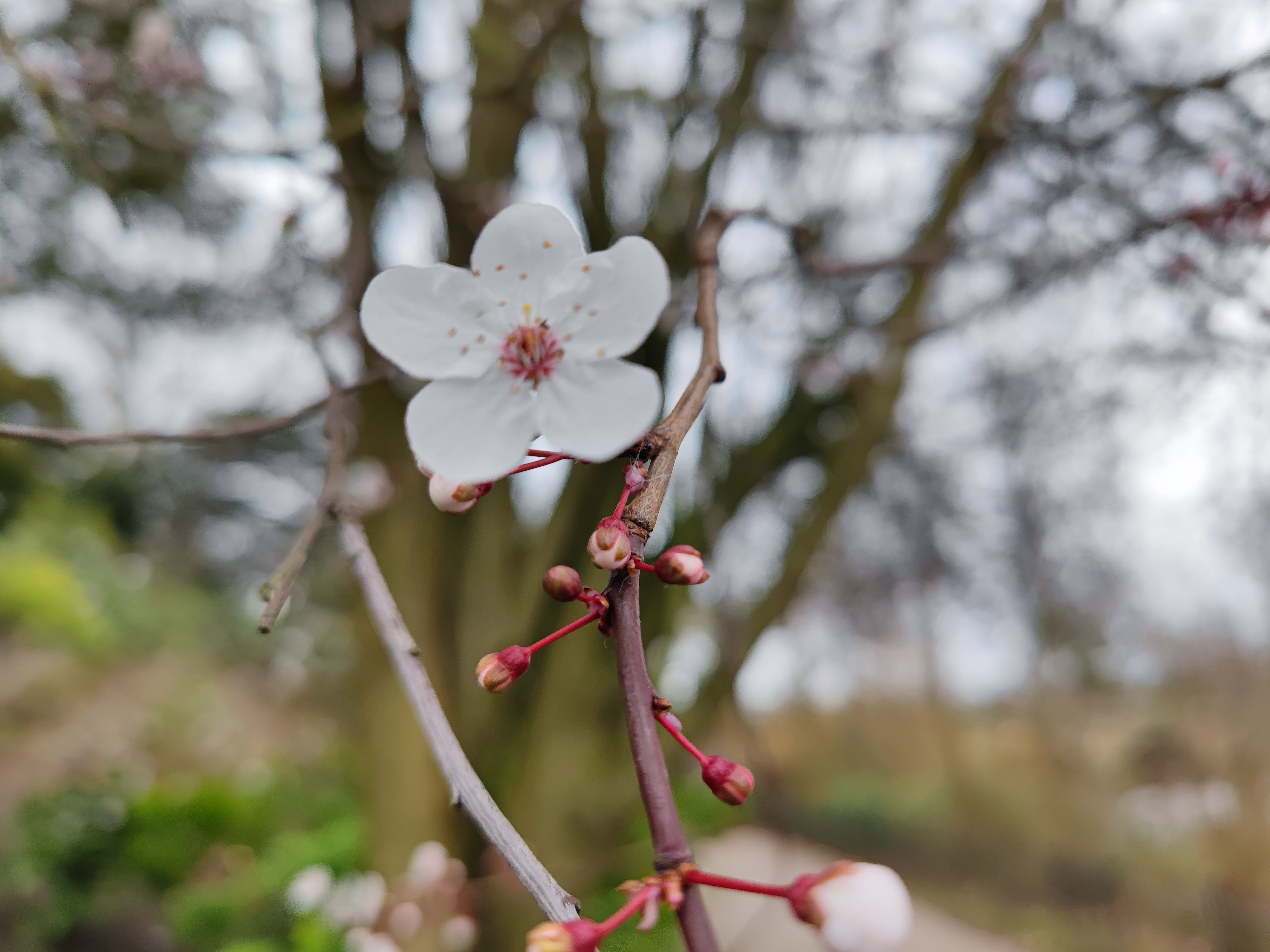
Well, this isn't even close.
We took these close-up pictures with the standard camera mode, pointing them at this little flower on the branch and hoping the picture looked good. As you can see, the Xiaomi is hands-down the best.
The Xiaomi image has a nice depth effect which makes the flower stand out, and your eyes are drawn to it immediately. Other similar pictures we took were exactly the same, making the snaps look fantastic.
On the other hand, the S22 Ultra decided to take a really cluttered snap; the background just isn't blurred enough. It appears messy, and we don't know where to look.
Further, taking this snap on the Samsung took absolutely ages because the camera app refused to autofocus correctly. We spent some time trying to capture the flower as anything other than a messy blur, even when we put down the Xiaomi to focus all our efforts into capturing the flower. Samsung's flagships have been criticized for autofocus issues before and that's clearly the case here.
We also tried taking this shot on both phone's macro modes. On the Galaxy, it opens automatically when it senses a subject is close, but for the Xiaomi you have to toggle it. We wouldn't recommend using either though – they use the ultra-wide lens, and both look pretty distorted and goofy.
Other modes
In addition to these key photography areas, both the Xiaomi Mi 11 Ultra and Samsung Galaxy S22 Ultra offer extra modes in the camera app.
We're not going to run through every single mode they both have. If your buying decision comes down to the minutiae of how panorama pics look side by side, we recommend tossing a coin to decide which to buy, but each has features the other doesn't, which makes them competitive.
First, Samsung has Single Take. You basically use this to record a video, pointing the phone at a subject and moving the device round across different angles, and the app rustles up a selection of the best images pulled from this. Single Take is useful because it lets you offset the photography decision-making process to AI, which can edit the snap for you, too.
Samsung also has a thing called Food mode, which you can use for your meals, obviously, but we've seen people use it for other kinds of macro and standard photography. This basically lets you choose the subject, and the rest of the scene is blurred – it's essentially a user-friendly form of manual focus. This probably wouldn't be necessary if the autofocus actually worked, though.
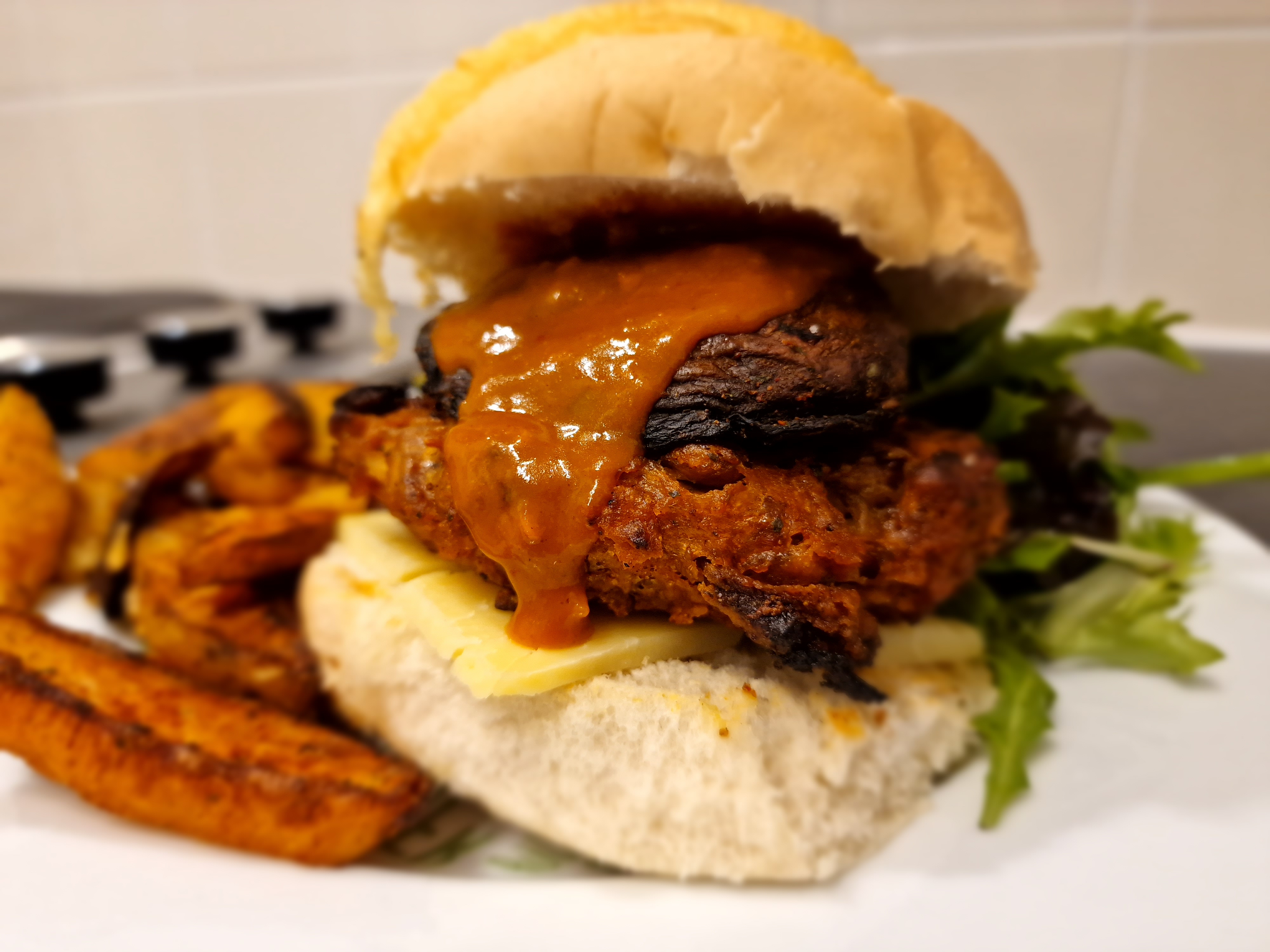
The above picture uses Food mode. Admittedly it wasn't taken in Hyde Park, but it's a good example of how the mode works because you can see the side of the vegan burger in focus and the rest is out of focus. We were going to share a Single Take example of the dish, but each result was annoyingly oversaturated.
Now onto Xiaomi's phone. The company used to unveil new and weird camera app modes with each new generation, and while it's slowed down in recent years, there are a few novel ones.
The highlight is Sky mode. Using AI, the phone detects where the sky is, and lets you swap it for something else. So we could take an overcast day and make it sunny, for example.


For the above example, we chose the most extreme option possible – a galaxy over Hyde Park's Italian Gardens. Due to London's light pollution, you'll never get this view in real life, but it's interesting to show how the AI doesn't just change the sky, but edits the rest of the image to match it.
What was the camera like to use?
We also need to briefly discuss what the user experience was like for both phones on this photography jaunt.
The Samsung phone felt a little slow to take pictures, despite having a newer chipset than the Xiaomi. When we pressed the capture button, the Mi 11 Ultra almost always took the picture quicker, which is probably because it's capturing 50MP snaps, not 108MP ones like Samsung.
We enjoyed taking pictures on the Xiaomi more as a result, and we didn't have to wait a little while every time we took the button. It also doesn't hurt that its screen is a bit better.
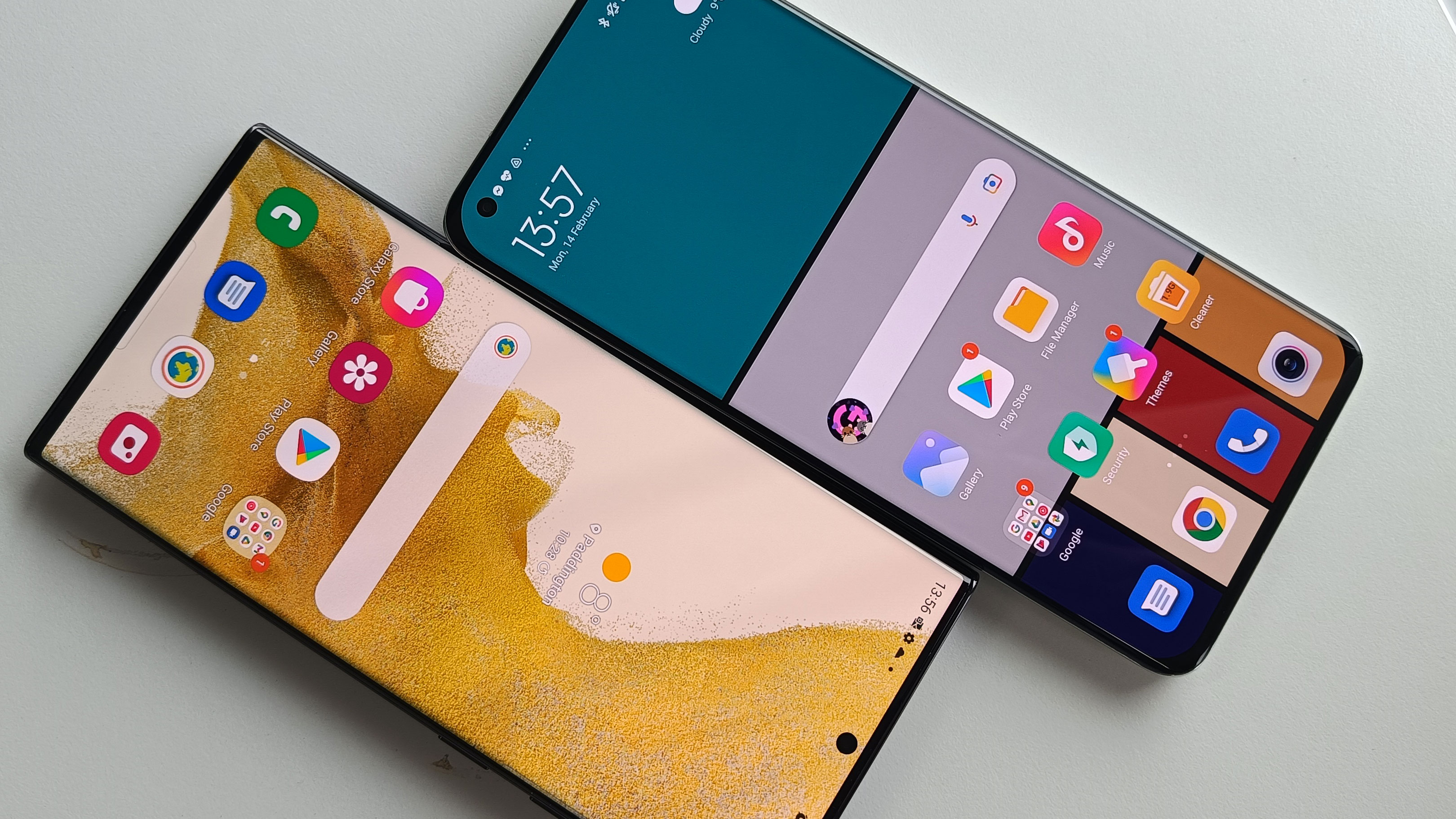
However, it is a giant phone, especially with its monstrous camera bump, so taking photos with the Xiaomi felt like a proper arm workout.
Oh, one other thing: the Samsung Galaxy S22 Ultra lets you use the S Pen stylus as a remote shutter. We didn't use this in our camera test, and it feels like something that would only be useful in select circumstances, but we should bring it up for fairness.
Samsung Galaxy S22 Ultra vs Xiaomi Mi 11 Ultra camera verdict
Neither phone wiped the floor with the other in this camera test, which is annoying because that would make for an easier verdict.
The Galaxy pulled ahead for ultrawide shots while the Mi was much, much better for close-up snaps, but those were the only two areas in which there were clear victors.
For things like standard pictures, portrait shots, and zoom images, both phones were roughly equal – they weren't the same, with different strengths and weaknesses, but it would be impossible to pick which was best.
If you're still stuck between the two phones, the modes like Single Take or Sky editing might let one pull ahead over the other, but you'll probably have to look at other elements of the phones, like the price, design, or charging speeds to make a decision.
from TechRadar - All the latest technology news https://ift.tt/P8aULYO
No comments:
Post a Comment